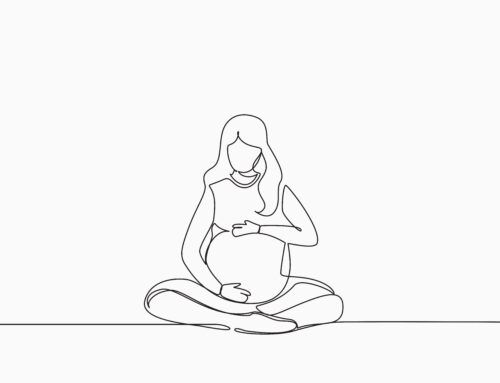 It is very common for women to experience morning sickness in their first trimester of pregnancy. Many women will feel moments of nausea which typically leads to vomiting. Though it is called morning sickness, these feelings can occur at any time of the day, or night. Though every woman is different, morning sickness can usually be experienced around 6 weeks and fizzles out around 16-18 weeks. Though it is quite uncomfortable, morning sickness is normal for pregnant women and a vast majority of women will experience it.
It is very common for women to experience morning sickness in their first trimester of pregnancy. Many women will feel moments of nausea which typically leads to vomiting. Though it is called morning sickness, these feelings can occur at any time of the day, or night. Though every woman is different, morning sickness can usually be experienced around 6 weeks and fizzles out around 16-18 weeks. Though it is quite uncomfortable, morning sickness is normal for pregnant women and a vast majority of women will experience it.
Though morning sickness is normal, there is a level of morning sickness that is not normal. If you follow the Royal Family, you may have heard of Kate Middleton experience bouts of abnormal, severe morning sickness, also known as Hyperemesis Gravidarum which is severe morning sickness. This condition causes women to persistently vomit several times daily, loose significant amounts of weigh, and become dehydrated.
If you are experiencing these symptoms, it is important to see you health care provider. Hyperemesis Gravidarum can be harmful to not only you, but negatively affect the growth and development of your baby. It is very common for a woman to get Hyperemesis Gravidarum during their first pregnancy, and unfortunately will be susceptible to it again in future pregnancies.
The cause of Hyperemesis Gravidarum is still unknown but, doctors believe that it may relate to the hormonal changes that occur during pregnancy. A hormone called human chorionic gonadotropin (HCG) might be to blame because the condition primarily occurs when HCG is at its highest levels in a pregnant woman’s body. Doctors also know that severe morning sickness can also be hereditary.
Am I at Risk?
Though doctors don’t specifically know the exact causes of severe morning sickness, there are certain factors that can increase a woman’s chances of getting it. Below are some risk factors that could possibly make you susceptible to Hyperemesis Gravidarum.
- carrying twins, triplets, etc.
- history of motion sickness
- history of migraine headaches with nausea or vomiting
- family history of severe morning sickness
What are the Symptoms?
The following symptoms indicate that you could be experiencing severe morning sickness. If you believe that you are suffering from severe morning sickness, consult with your health care provider promptly.
- Consistent nausea throughout the day
- Inability to keep food and liquids down
- Vomit that has blood in it
- Sudden weight loss during pregnancy
- Feeling dizzy
- Fainting or confusion
- Decreased urination
- Headaches or migraines
- Decrease in urination
- Extreme fatigue
Can this Harm my Baby?
When a woman is continually vomiting, it is very difficult for her to keep food down. This strips your baby from receiving nutrients that it needs to develop in your womb during pregnancy. Hyperemesis Gravidarum also leads to weight loss in the mother, which is also not idea during pregnancy. The loss of fluids from the mother, combines with the loss of stomach acid can lead to dehydration and electrolyte imbalances. This can lead to many complications if left untreated including premature birth and in serious cases, organ failure.
It’s important to call the doctor right away if a pregnant woman has any of the following
How can it be treated?
Treating severe morning sickness goes beyond eating saltines and sipping gingerale, which is a common cure for regular morning sickness. Most of the time severe morning sickness needs to be treated by a health care provider and can even result in hospitalization. The medical treatments for severe morning sickness include:
- rest the gastrointestinal system by not consuming food for a short period of time
- IV’s of fluids –including anti-vomiting medicines
- Vitamins and supplements recommended by your doctor
- Avoiding spicy foods
- Eat a bland diet
- prescription medicine throughout the entire pregnancy from your doctor to treat the condition
With treatment, severe morning sickness can be cured or alleviated. It is important for pregnant women to recognize the signs of Hyperemesis Gravidarum, and to seek medical treatment when necessary. Also be sure to ask your close family members, such as your mother, if she experienced severe morning sickness. Becoming knowledgeable about this condition can give you the tools to take preventative measures against it, and know when it is time to seek medical help.




